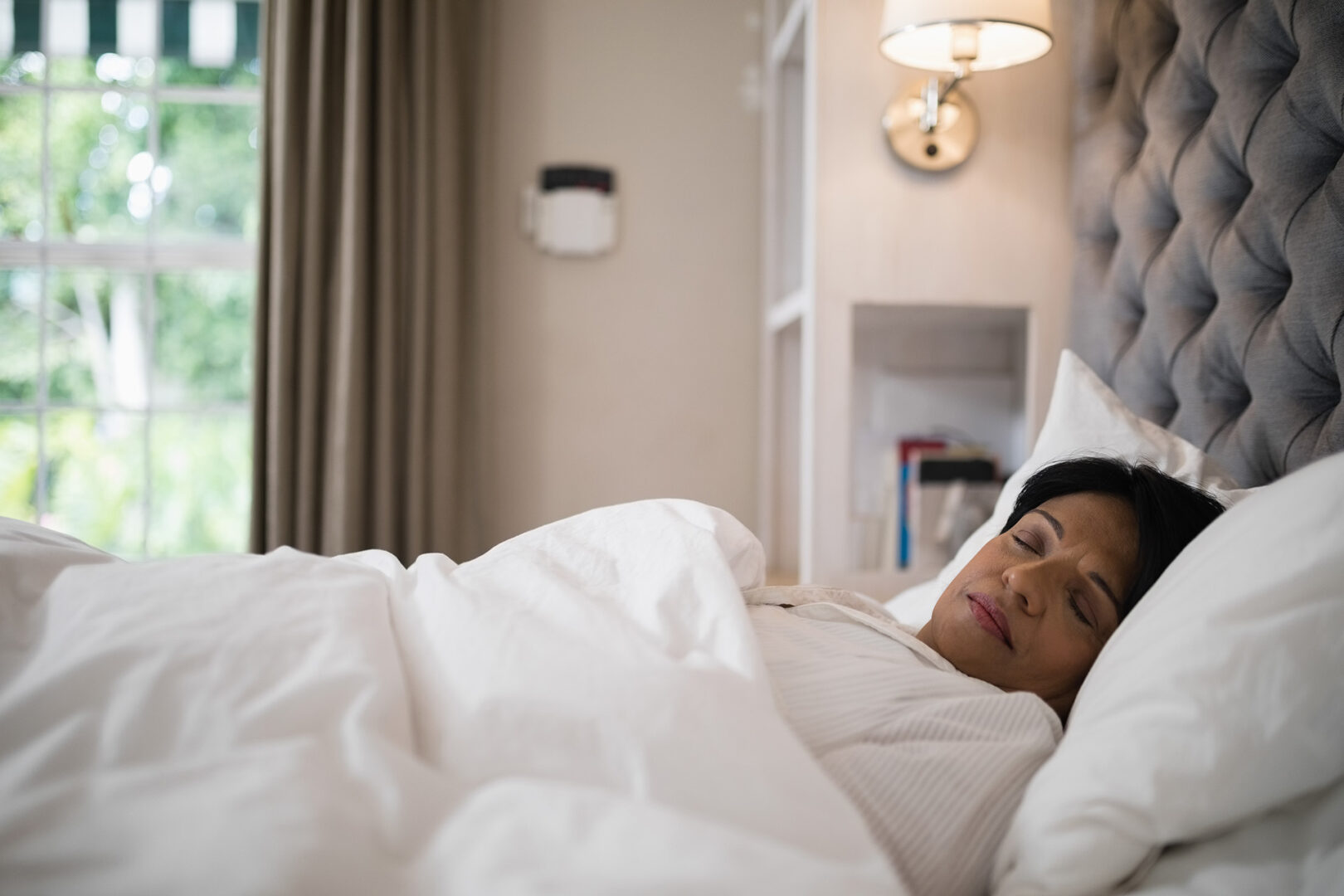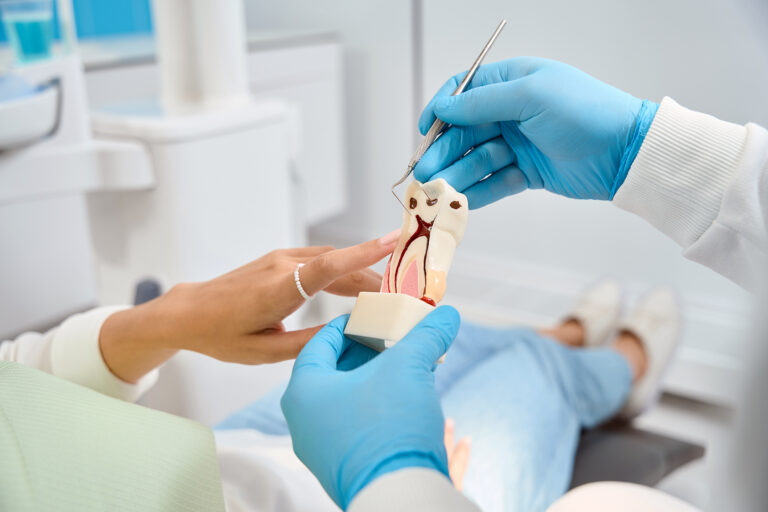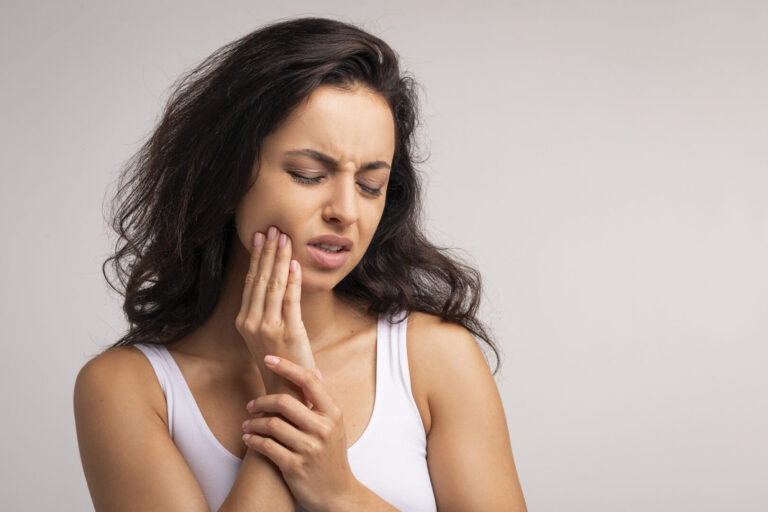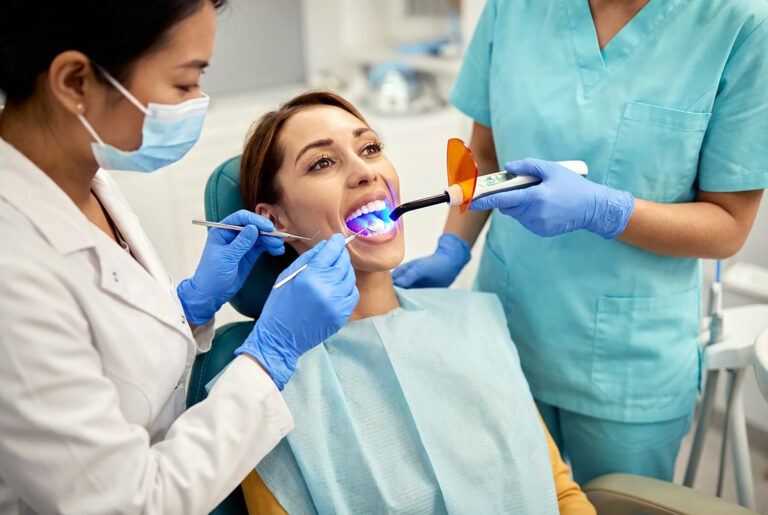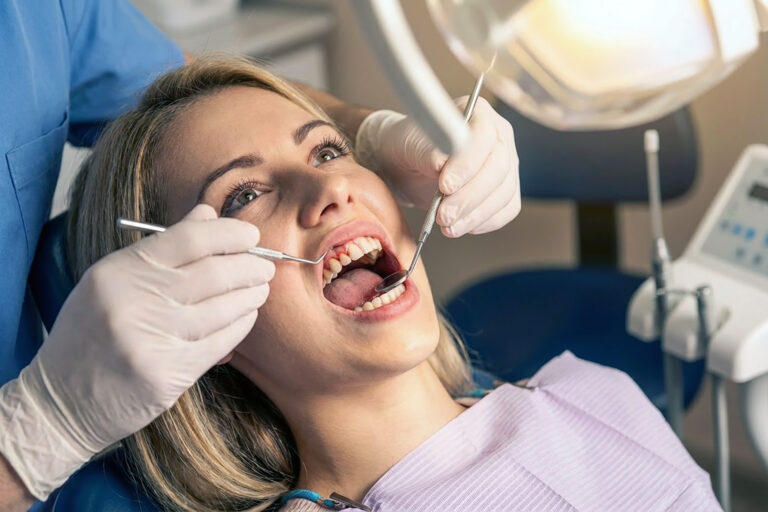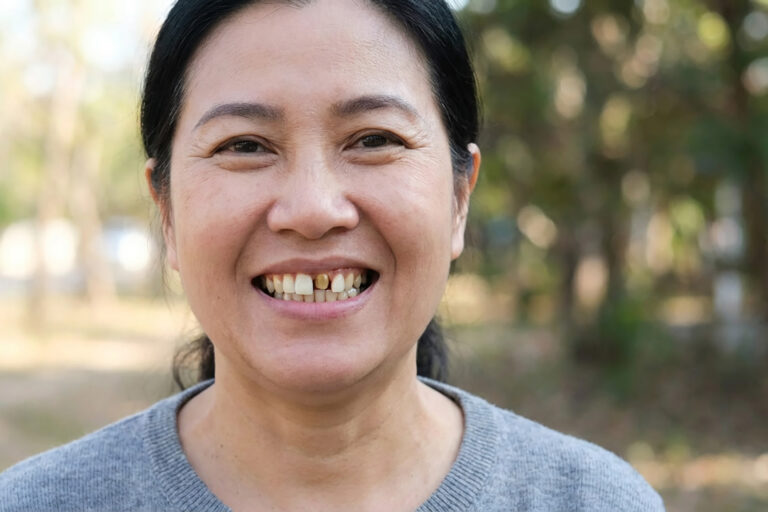Teeth grinding while sleeping, also known as sleep bruxism, affects millions of people worldwide. The unconscious clenching or teeth grinding during sleep is harmless if it only happens occasionally. However, frequent or severe grinding can cause dental problems, jaw disorders and disrupted sleep. Knowing what causes teeth grinding while you sleep and how to treat it is key to oral health and well-being.
What Is Sleep Bruxism?
Sleep bruxism is a type of bruxism that occurs during sleep and is characterised by the involuntary grinding or clenching of the teeth. Some side effects of grinding your teeth while sleeping include tooth damage, jaw pain and sleep disturbance.
The main muscles involved in teeth grinding and clenching are the masseter muscle, temporalis muscle, and medial pterygoid muscle, all of which are part of the jaw. When these muscles contract, they can cause the teeth to grind or clench, resulting in bruxism. Understanding the anatomy and function of these jaw muscles is key to diagnosing and treating bruxism. By targeting these muscles, treatments can alleviate the symptoms and prevent further damage.
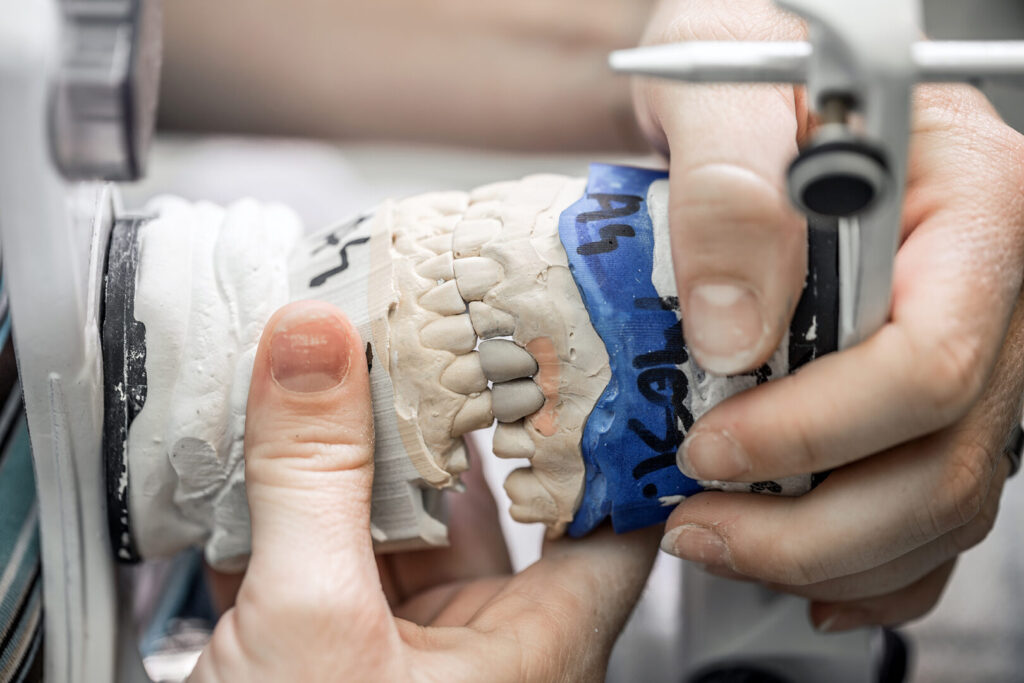
What Causes Grinding Teeth While Sleeping?
If you find yourself asking, “Why do I grind my teeth while sleeping?” The answer is likely a combination of several different factors. The causes of teeth grinding while sleeping can vary from person to person and are often a combination of physical, psychological, and lifestyle factors. Stress and anxiety are some of the most common triggers.
Sleep disorders such as sleep apnoea are also closely linked to teeth grinding while sleeping. People with sleep apnoea experience interrupted breathing, and the body clenches the jaw as a reflex response. Misaligned teeth or an abnormal bite can also cause grinding as the jaw tries to find a comfortable resting position during sleep.
Lifestyle factors such as excessive caffeine or alcohol consumption, smoking, and certain medications can increase the risk of grinding teeth while sleeping. Even genetics can play a role, as bruxism tends to run in families.
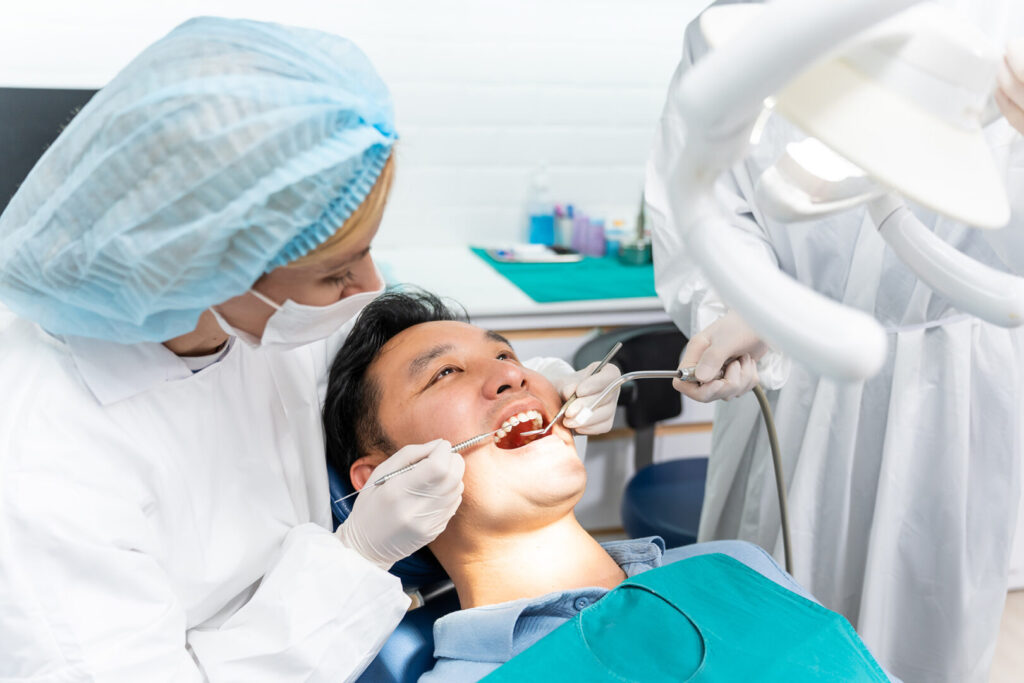
Recognising the Signs and Symptoms of Grinding Teeth While Sleeping
Many people are unaware that they grind their teeth while sleeping until a partner mentions the sound, or a dentist notices the signs during a routine checkup. However, several signs may indicate that you are grinding your teeth at night.
One of the most common signs is waking up with a sore jaw, facial pain, or headaches. The pressure from the clenching and grinding during the night causes these symptoms. Tooth sensitivity, worn-down enamel, and chipped or flat teeth are also common symptoms of grinding teeth while sleeping.
If left untreated, sleep bruxism can lead to more serious complications, such as temporomandibular joint (TMJ) disorders, which cause pain and dysfunction in the jaw joint and surrounding muscles. The constant pressure on the teeth and gums can also increase the risk of gum recession , tooth damage such as chipping or cracking of the teeth, jaw pain or tenderness that can radiate to the face or ears, and sleep disturbances such as insomnia or daytime fatigue.
Diagnosing bruxism can be tricky as it often occurs during sleep and may not be noticeable during the day. A thorough dental examination, including a review of the patient’s medical history and a physical examination of the teeth and jaw, can help diagnose bruxism.
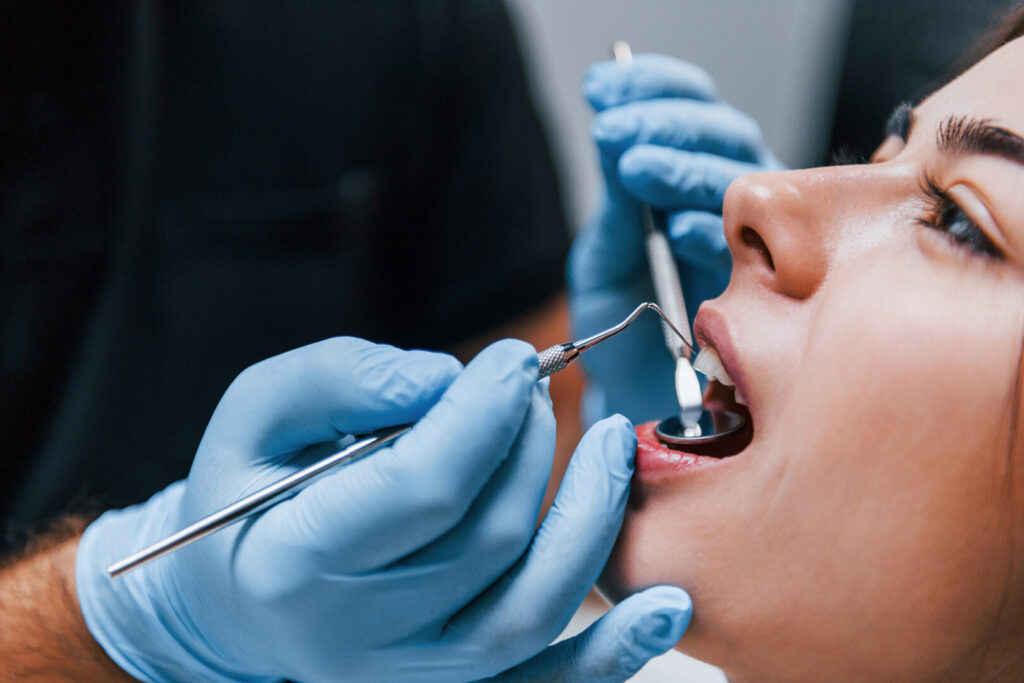
How to Cure Teeth Grinding While Sleeping
There is no universal ‘cure’ for grinding teeth while sleeping, but effective management strategies can reduce its frequency and impact.
One of the most common and effective treatments is wearing a custom-made night guard. This dental appliance acts as a barrier between the upper and lower teeth, preventing damage caused by grinding. Night guards are designed to fit comfortably and protect your teeth without disrupting sleep.
Addressing any underlying dental issues, such as misaligned teeth, can also provide relief. Orthodontic treatment, such as fixed braces or clear aligners, can correct bite problems and reduce grinding. In some cases, dental adjustments such as reshaping the chewing surfaces of teeth can also alleviate the issue.
Stress management techniques such as mindfulness meditation, yoga, and cognitive-behavioural therapy (CBT) can also effectively reduce stress-related grinding. If sleep apnoea is the underlying cause, treating the sleep disorder with continuous positive airway pressure (CPAP) therapy or other appropriate measures can reduce bruxism.
Lifestyle changes can also support treatment. Reducing caffeine and alcohol consumption, quitting smoking and establishing a relaxing bedtime routine can promote better sleep and reduce the likelihood of grinding teeth while sleeping.
For those with severe bruxism, Botox injections may be recommended to relax the jaw muscles and prevent excessive clenching. While not a first-line treatment, Botox can be effective for patients who do not respond to other interventions.
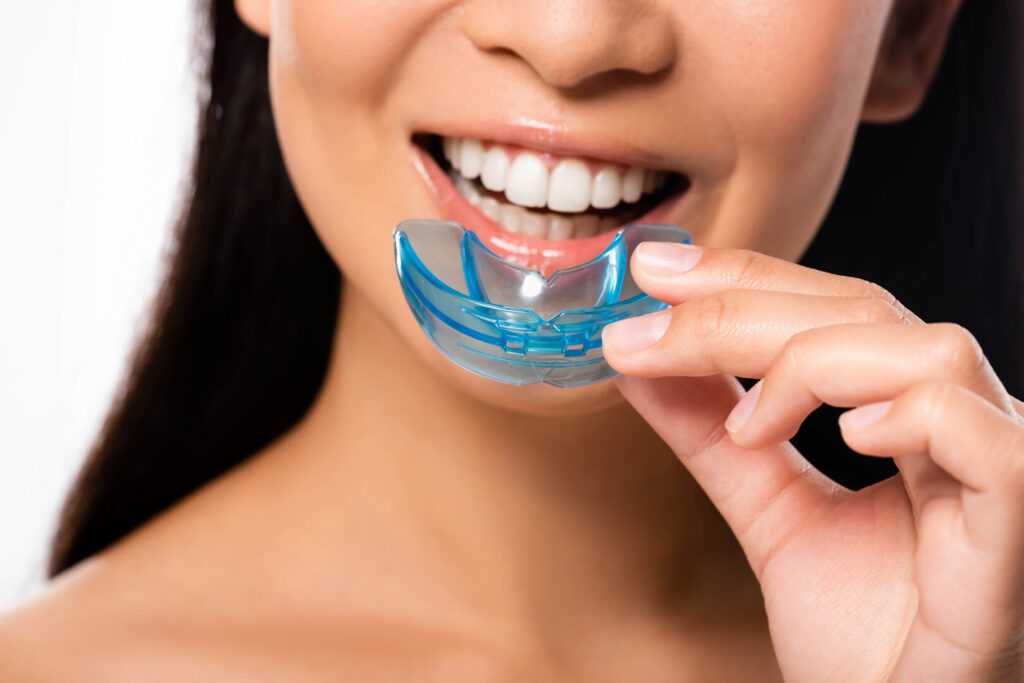
Preventing Long-Term Effects of Teeth Grinding and Jaw Pain
Preventing the effects of grinding teeth while sleeping requires a proactive approach.
Regular dental check-ups allow your dentist to identify early signs of bruxism and recommend interventions. Practicing good sleep hygiene, managing stress and wearing a night guard can protect your teeth from damage. Additionally, awake bruxism, which often goes unnoticed during waking hours, poses significant risks to dental health and can be challenging to diagnose and manage.
Paying attention to daytime habits can make a difference. If you catch yourself clenching your teeth during the day, consciously relax your jaw and maintain good posture. Simple exercises such as gently opening and closing the mouth can help relieve tension in the jaw muscles.
Lifestyle and Home Remedies
While bruxism can be a challenging condition to manage, several lifestyle and home remedies can help alleviate symptoms.
- Practice relaxation techniques, such as deep breathing or meditation, which can reduce stress and anxiety, which are common triggers for teeth grinding.
- Avoid chewing gum or hard foods that trigger teeth grinding.
- Regular exercise can reduce stress and improve sleep quality.
- Maintain good oral hygiene and regular dental check-ups to monitor tooth wear and tear.
When to See a Dentist
If you have persistent jaw pain, headaches or teeth damage, it’s time to see a dentist. Our dental surgeons at TEETH @ Tiong Bahru can assess your symptoms, diagnose the underlying cause and recommend a treatment plan. Early intervention protects your teeth and improves sleep quality and overall well-being.
Contact TEETH @ Tiong Bahru today to schedule a consultation and learn more about managing sleep bruxism.

